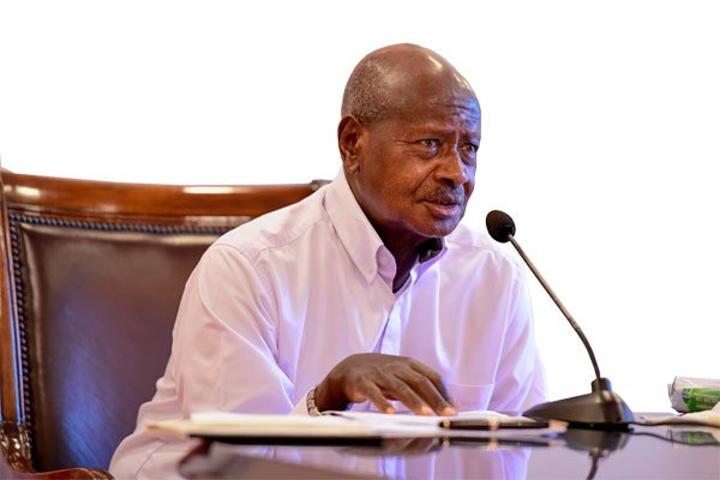Africa-Press – Uganda. President Museveni suggests an alternative of both developed countries and their pharmaceutical companies to waive patents on Covid-19 vaccines.
President Museveni last evening joined other actors across the world to condemn what they called “vaccine nationalism.”
Vaccine nationalism describes a situation where governments, especially in the developed world, sign agreements with pharmaceutical manufacturers to supply their own populations with vaccines first before making it available for other countries.
In his pre-recorded address to the 76th session of the United Nations General Assembly (UNGA) delivered around 4pm (US Eastern Time), Mr Museveni said vaccine nationalism, however “wrong” serves a “good lesson for developing countries.”
UNGA is the assembly of all the 193 UN member countries.
“We call for more action to ensure that at the centre of a global recovery is equitable access to effective and affordable vaccines,” the President said. He said this should also include therapeutics and diagnostics that help treatment in the absence of the vaccines.
Long before the now-approved Covid-19 vaccines had gone through the full cycle of clinical trials, several developed countries, including the European Union bloc, the United States, and Britain, had placed orders for million doses from pharmaceutical companies.
This has created a thick layer of bureaucracy for developing countries to procure vaccines.
At the commencement of the General Assembly on Monday, protestors gathered outside the UN headquarters in New York to demand an end to “vaccine apartheid” which sees poorer countries pushed to the back of the queue by pharmaceutical companies.
In his address, President Museveni suggested an alternative of both developed countries and their pharmaceutical companies to waive patents on Covid-19 vaccines and other technology to be reproduced in developing countries as one way of ending vaccine inequity.
Several leaders of developing countries in their respective addresses also condemned vaccine apartheid. South Africa’s president Cyril Ramaphosa described vaccines as “the greatest defense that humanity has against the ravages of this pandemic.”
Seychelles’ President Wavel Ramkalawan said: “There is a virus far more terrible, far more harrowing than Covid-19. It is the virus of inequality.”
The 76th session of the UNGA kicked off on Monday under theme “Building resilience through hope – to recover from COVID-19, rebuild sustainability, respond to the needs of the planet, respect the rights of people, and revitalize the United Nations”.
The government is currently on an extensive vaccination mobilisation drive to administer some 12 million jabs by end of the year on account of acquisition of 11.9 million vaccine doses expected into the country by end of November. Cumulative recorded Covid-19 cases stand at 122,502 confirmed cases and 3,135 deaths.
According to the World Health Organisation, only 15 percent of vaccines promised — from developed countries that have surplus—have been delivered. Speaking on Wednesday at a virtual summit aimed at bolstering global vaccination efforts, US President Joe Biden committed additional 500 million Pfizer vaccine doses around world, bringing total US jab donations to more than 1.1 billion and urged leaders of rich countries to do more.
President Museveni told world leaders that like elsewhere, the pandemic and back to back lockdowns imposed to control spread of the virus, had caused ripples both to the country’s health system and other sectors of the economy but remained resilient.
Regardless, he said his government remained focused on steering the UN’s 2030 Sustainable Development Goals (SDGs) agenda as underlined in the policy prescription blueprint, the National Development III.
The President also commented to the global debate of climate change, saying that while Uganda was among the less contributors to carbon emissions it was on the receiving end of adverse impacts including droughts and floods as witnessed by the rise in water levels across lake basins in the country.






